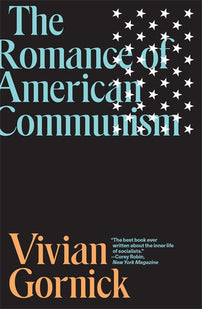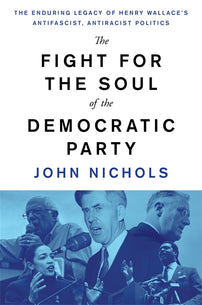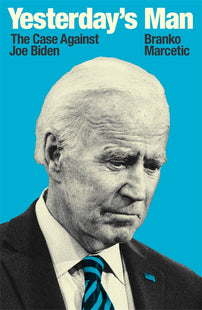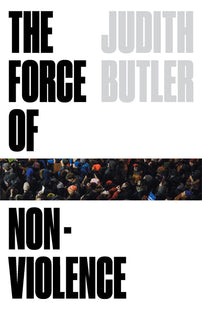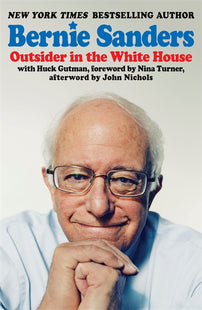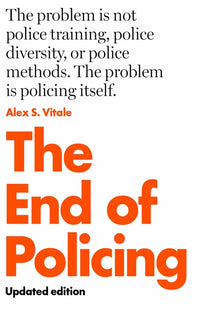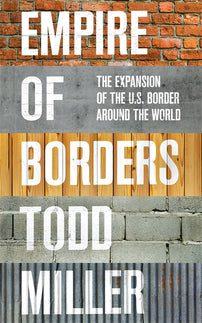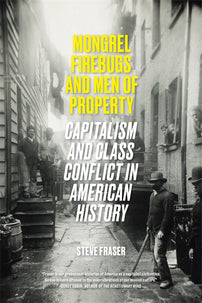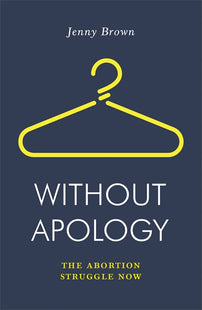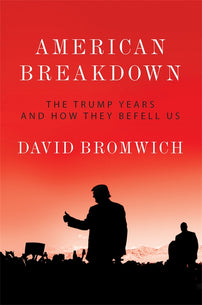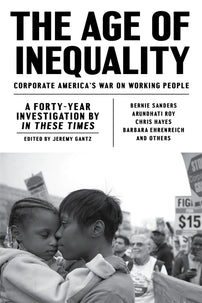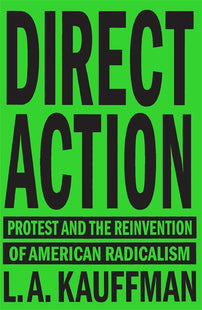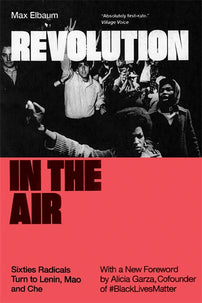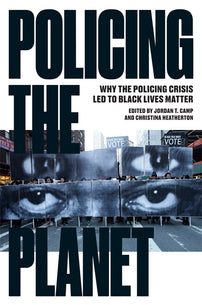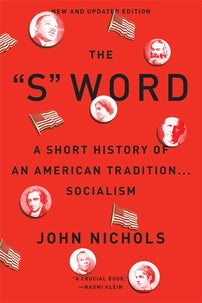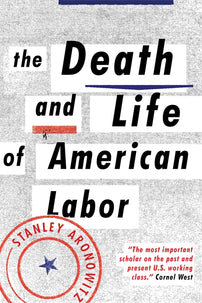US politics in a moment of crisis
A reading list of US politics books on what to learn from the Bernie Sanders campaign, the legacy of Henry Wallace, the emotion driving members of the US Communist Party in the mid twentieth century and more.

It's hard to find much to inspire optimism during a health crisis that is killing thousands and disproportionately impacting low-income people of color. Add to that Bernie's decision to drop out of the Democratic primary race and a stimulus plan that leaves millions of people in the cold while paying out billions to corporations, further exacerbating the wealth gap that will shape society for years to come.
This reading list of essential books on American politics looks at the neoliberal origins of our current crisis and the history of solidarity and resistance that we can draw on today.
Bigger than Bernie offers unmatched insights into the people behind the most unique campaign in modern American history and a clear-eyed sense of how the movement can sustain itself for the long haul.
[book-strip index="2" style="buy"]
Now back in print after its initial publication in 1977 and with a new introduction by the author, The Romance of American Communism is a landmark work of new journalism, profiling American Communist Party members and fellow travelers as they joined the Party, lived within its orbit, and left in disillusionment and disappointment as Stalin’s crimes became public.
Henry Wallace’s political vision—as well as his nomination to remain vice president—was sidelined by Democratic big city bosses and southern segregationists. In the decades to come, other progressives would mount similar campaigns: George McGovern and Jesse Jackson most prominently. As John Nichols chronicles in this book, they ultimately failed—a warning to would-be reformers today—but their efforts provide us with insights into the nature of the Democratic Party and strategic lessons for the likes of Bernie Sanders and Alexandria Ocasio-Cortez.
[book-strip index="4" style="buy"]The Dispossessed tells the story of a twenty-four-year-old Salvadoran man, Arnovis, whose family’s search for safety shows how the United States—in concert with other Western nations—has gutted asylum protections for the world’s most vulnerable. Adding historical, literary, and current political context to the discussion of migration today, Washington tells the history of asylum law and practice through ages to the present day.
[book-strip index="5" style="buy"]"Touré Reed is the most brilliant historian of the black freedom movement of his generation. This book is the best grasp of our recent past and guide for a progressive future we have!" —Cornel West, author of Race Matters
[book-strip index="6" style="buy"]Far from being a liberal stalwart, Biden often outdid even Reagan, Gingrich, and Bush, assisting the right-wing war against the working class, and ultimately paving the way for Trump. The most comprehensive political biography of someone who has tried for decades to be president, Yesterday’s Man is an essential read for anyone interested in knowing the real Joe Biden and what he might do in office.
[book-strip index="7" style="buy"]One day in the spring of 2013, a box appeared outside a fourth-floor apartment door in Brooklyn, New York. The recipient, who didn’t know the sender, only knew she was supposed to bring this box to a friend, who would ferry it to another friend. This was Edward Snowden’s box—materials proving that the U.S. government had built a massive surveillance apparatus and used it to spy on its own people–and the friend on the end of this chain was filmmaker Laura Poitras.
[book-strip index="8" style="buy"]Mike Davis and Jon Wiener provide the first comprehensive movement history of L.A. in the sixties, drawing on extensive archival research and dozens of interviews with principal figures, as well as the authors’ storied personal histories as activists. Following on from Davis’s awardwinning L.A. history, City of Quartz, Set the Night on Fire is a historical tour de force, delivered in scintillating and fiercely beautiful prose.
[book-strip index="9" style="buy"]Prisoners of the American Dream is Mike Davis’s brilliant exegesis of a persistent and major analytical problem for Marxist historians and political economists: Why has the world’s most industrially advanced nation never spawned a mass party of the working class?
[book-strip index="10" style="buy"]Considering nonviolence as an ethical problem within a political philosophy requires a critique of individualism as well as an understanding of the psychosocial dimensions of violence. Butler draws upon Foucault, Fanon, Freud, and Benjamin to consider how the interdiction against violence fails to include lives regarded as ungrievable.
[book-strip index="11" style="buy"]An extensive afterword by the Nation’s National Affairs correspondent, John Nichols, continues the story with Sanders’s entrance into the Senate, the drama of the 2016 Democratic Primary, his ongoing resistance to Trump, and the thrilling launch of his 2020 bid for the White House. A new foreword by Nina Turner, former president of Our Revolution and co-chair of the Sanders for President campaign, provides a rare glimpse of Bernie as a person. Outsider in the White House is the story of a passionate and principled political life.
[book-strip index="12" style="buy"]As Daniel Denvir argues, issues as diverse as austerity economics, free trade, mass incarceration, the drug war, the contours of the post 9/11 security state, and, yes, Donald Trump and the Alt-Right movement are united by the ideology of nativism, which binds together assorted anxieties and concerns into a ruthless political project.
[book-strip index="13" style="buy"]In this groundbreaking discussion, Ed Morales explains how Latinx political identities are tied to a long Latin American history of mestizaje—“mixedness” or “hybridity”—and that this border thinking is both a key to understanding bilingual, bicultural Latin cultures and politics and a challenge to America’s infamously black–white racial regime. This searching and long-overdue exploration of the meaning of race in American life reimagines Cornel West’s bestselling Race Matters with a unique Latinx inflection.
[book-strip index="14" style="buy"]This book attempts to spark public discussion by revealing the tainted origins of modern policing as a tool of social control. It shows how the expansion of police authority is inconsistent with community empowerment, social justice—even public safety. Drawing on groundbreaking research from across the world, and covering virtually every area in the increasingly broad range of police work, Alex Vitale demonstrates how law enforcement has come to exacerbate the very problems it is supposed to solve.
[book-strip index="15" style="buy"]Surveying a period from the late seventeenth century—the era in which W.E.B. Du Bois located the emergence of “whiteness”—through the American Revolution and the Civil War to the civil rights movement and the emergence of the American empire, How Race Survived US History reveals how race did far more than persist as an exception in a progressive national history. This masterful account shows how race has remained at the heart of American life well into the twenty-first century.
[book-strip index="16" style="buy"]A Planet to Win explores the political potential and concrete first steps of a Green New Deal. It calls for dismantling the fossil fuel industry, building beautiful landscapes of renewable energy, and guaranteeing climate-friendly work, no-carbon housing, and free public transit. And it shows how a Green New Deal in the United States can strengthen climate justice movements worldwide.
[book-strip index="17" style="buy"]The twenty-first century has witnessed the rapid hardening of international borders. Security, surveillance, and militarization are widening the chasm between those who travel where they please and those whose movements are restricted. But that is only part of the story. As journalist Todd Miller reveals in Empire of Borders, the nature of US borders has changed. These boundaries have effectively expanded thousands of miles outside of US territory to encircle not simply American land but Washington’s interests.
[book-strip index="18" style="buy"]From the colonial era to Trump, Steve Fraser recovers the repressed history of debtors’ prisons and disaster capitalism, of confidence men and the reserve armies of the unemployed. In language that is dynamic and compelling, he demonstrates that class is a fundamental feature of American political life and provides essential intellectual tools for a shrewd reading of American history.
[book-strip index="19" style="buy"]Whether class or race is the more important factor in modern politics is a question right at the heart of recent history’s most contentious debates. Among groups who should readily find common ground, there is little agreement. To escape this deadlock, Asad Haider turns to the rich legacies of the black freedom struggle. Drawing on the words and deeds of black revolutionary theorists, he argues that identity politics is not synonymous with anti-racism, but instead amounts to the neutralization of its movements.
[book-strip index="20" style="buy"]In this powerful blend of personal and historical narrative, Nick Estes skillfully weaves together transformative stories of resistance from these front lines, never losing sight of their enormous stakes. A major contribution.”
– Naomi Klein, author of This Changes Everything
Jenny Brown uncovers a century of legal abortion in the United States until 1873, recalls women’s experiences in the illegal days, and shows how the women’s liberation movement of the 1960s really won abortion rights. She draws inspiration and lessons from the radicals of Redstockings, the Army of Three, and the Jane Collective, putting together a road map for today’s organizers from the black feminist argument for reproductive justice, the successful fight to make the morning-after pill available over the counter, and the recent mass movement to repeal Ireland’s abortion ban.
[book-strip index="22" style="buy"]An unsparing account of the degradation of US democracy, American Breakdown is essential to our evaluation of its prospects. Arguing that Trump’s re-election seems just as likely as impeachment, Bromwich turns his attention to the new struggles within the Democratic Party on immigration, foreign policy, and the Green New Deal.
[book-strip index="23" style="buy"]Since the birth of the nation, impulses of empire have been close to the heart of the United States. How these urges interact with the way the country understands itself, and the nature of the divergent interests at work in the unfolding of American foreign policy, is a subject much debated and still obscure. In a fresh look at the topic, Anderson charts the intertwined historical development of America’s imperial reach and its role as the general guarantor of capital.
[book-strip index="24" style="buy"]With heart-wrenching reporting and incisive analysis, In These Times magazine has charted a staggering rise in inequality and the fall of the American middle class. Here, in a selection from four decades of articles by investigative reporters and progressive thinkers, is the story of our age. It is a tale of shockingly successful corporate takeovers stretching from Reagan to Trump, but also of brave attempts to turn the tide, from the Seattle global justice protests to Occupy to the Fight for 15.
[book-strip index="25" style="buy"]Now, as protest movements again take on a central and urgent political role, Kauffman’s history offers both striking lessons for the current moment and an unparalleled overview of the landscape of recent activism. Written with nuance and humor, Direct Action is essential reading for anyone interested in understanding the protest movements of our time.
[book-strip index="26" style="buy"]The sixties were a time when radical movements learned to embrace twentieth-century Marxism. Revolution in the Air is the definitive study of this turning point, and examines what the resistance of today can learn from the legacies of Lenin, Mao and Che.
[book-strip index="27" style="buy"]Bernie Sanders shocked the political establishment by winning 13 million votes and a majority of young voters in the 2016 Democratic primary. Since that upset, repeated polls have judged this democratic socialist to be the most popular politician in the United States. What lessons can be drawn from his surprising insurgent campaign?
[book-strip index="28" style="buy"]With contributions from #BlackLivesMatter cofounder Patrisse Cullors, Ferguson activist and Law Professor Justin Hansford, Director of New York–based Communities United for Police Reform Joo-Hyun Kang, poet Martín Espada, and journalist Anjali Kamat, as well as articles from leading scholars Ruth Wilson Gilmore, Robin D. G. Kelley, Naomi Murakawa, Vijay Prashad, and more, Policing the Planet describes ongoing struggles from New York to Baltimore to Los Angeles, London, San Juan, San Salvador, and beyond.
[book-strip index="29" style="buy"]In an updated edition, The “S” Word makes a case for socialist ideas as an indispensable part of American heritage. A new final chapter considers the recent signs of a leftward sea change in American politics in the face of increasing and historic levels of inequality.
[book-strip index="30" style="buy"]Union membership in the United States has fallen below 11 percent, the lowest rate since before the New Deal. Labor activist and scholar of the American labor movement Stanley Aronowitz argues that the movement as we have known it for the last 100 years is effectively dead. And he explains how this death has been a long time coming—the organizing and political principles adopted by US unions at mid-century have taken a terrible toll. In the 1950s, Aronowitz was a factory metalworker.

